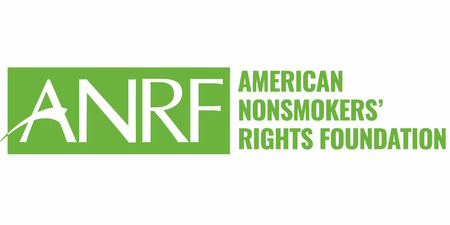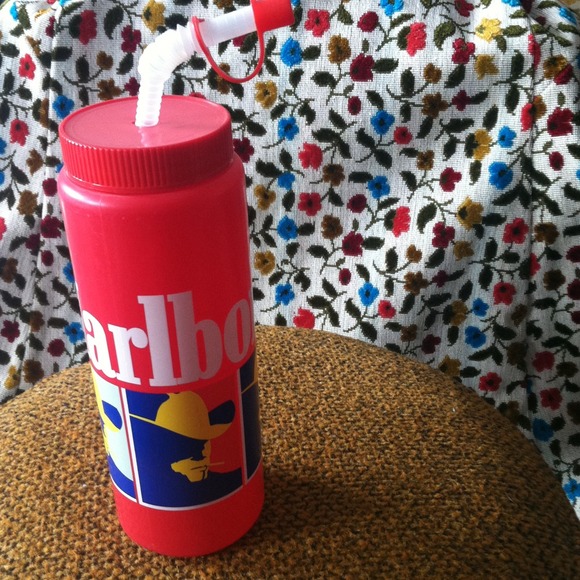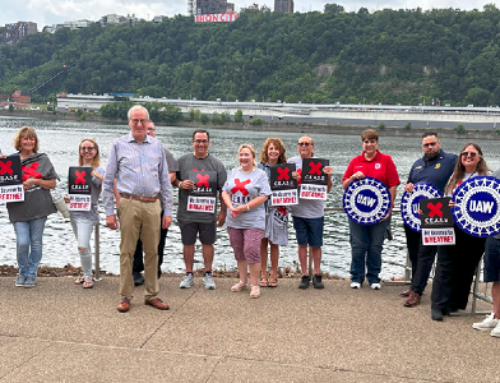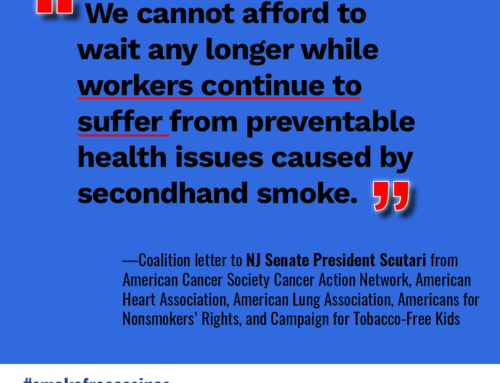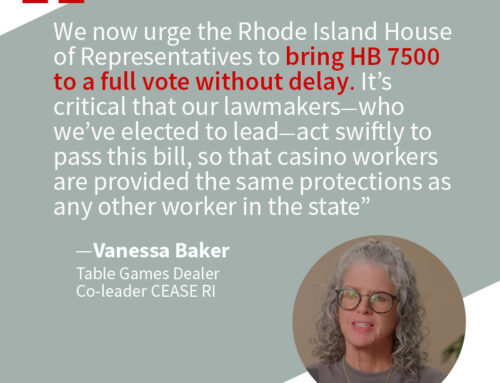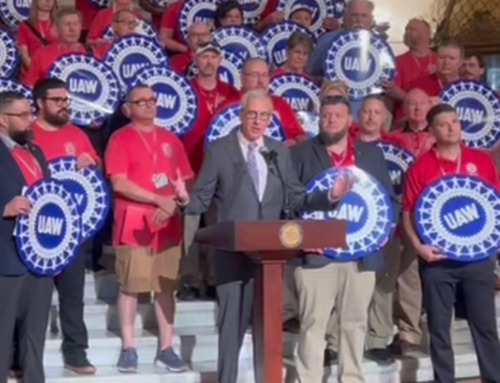Michigan’s Governor, Gretchen Whitmer, was the first to announce that all sales of flavored e-cigarettes would cease statewide in response to the alarming use of these products by young people. Health groups applauded the Governor’s sweeping policy change and commended her efforts to protect youth from a lifetime of nicotine addiction.
An unlikely supporter weighed in on the Michigan decision: e-cigarette manufacturing giant, Juul. In an official statement, Juul proclaimed its support for the “outright ban on such flavors, including those that mimic kid-specific candies, foods, and drinks.” Juul’s statement goes on to make the argument for self-regulation in response to recent push-back on their nefarious marketing and targeting strategies:
Under Juul Labs’ Retail Access Control Standards (RACS) program, a point-of-sale system at retail immediately locks when a Juul product is scanned and remains locked until a retailer electronically scans a valid, of-age government-issued ID to verify both the age and the ID validity.
This proposal is eerily similiar to the “We Card” program that came straight from the Big Tobacco playbook, and was funded by tobacco companies and their front groups, including the Tobacco Institute. The now denounced project was a program meant to curb tobacco sales to minors based on voluntary participation from retailers. We cannot trust adjudicated racketeers to effectively regulate themselves given its explicit targeting of youth to create more users and increase industry profits from sale of tobacco products, including e-cigarettes.
Scanning for age-verification or a marketing plan?
The technology to glean user data under the guise of ‘safety’ when scanning in people’s identification may be intended to build customer databases and develop user profiles versus merely checking age. ID scanning is a specific tactic used by tobacco companies in the past, such as Marlboro promotion nights at bars. Tobacco representatives scanned individual IDs in exchange for free branded gifts (like a sports water bottle), and then added their names and addresses to mailing lists for future marketing and promotion purposes (e.g., sending product coupons or sending action alerts to oppose tobacco-related regulations).
It’s not 1995. We Card failed to deter or prevent youth access to tobacco. All of the youth access programs developed or backed by the tobacco industry relied on the voluntary cooperation of tobacco retailers. Juul is trying to promote corporate self-regulation rather than be subject to meaningful policies that can protect youth and young adults from their addictive products. Don’t be fooled: evidenced based public health policies around purchasing tobacco products and where one can use these products (e.g., smoke and vape-free workplaces and public places) are the most effective means to curb this epidemic.
Sample of other industry-sponsored youth access programs whose efficacy has been debunked:
- “It’s the Law”
This was the Tobacco Institute’s first major “youth access” program. It featured the distribution of blue signs with white and orange lettering which read: “It’s the Law: We Do Not Sell Tobacco Products to Persons Under 18.” In late 1990, the Tobacco Institute announced a $10 million public relations campaign surrounding “It’s the Law.” In addition to posting signs, the program also included:
-
- Support for legislation requiring supervision of tobacco vending machines.
- Voluntary restrictions on tobacco billboard placement and free sampling of tobacco products.
- Distribution of the Tobacco Institute/C.O.U.R.S.E. Consortium booklet, “Helping Youth Say No”.
Not surprisingly, a 1996 article published in the American Journal of Public Health found “It’s the Law” programs were not associated with a significant reduction in illegal sales either with vending machines or over-the-counter sources (DiFranza, Savageau & Aisquith, 1996). Tobacco control activists long suspected that the actual purpose of the program was to improve the low public image of the tobacco industry, while legitimizing certain industry lobbying efforts. With the forced release of internal industry documents, this suspicion has been confirmed (Hanners, 1998).
- “Support The Law—It Works”
Much like “It’s the Law,” this was R.J. Reynolds’ first “comprehensive” retail program. The program was most notable for having enlisted actor Danny Glover as its spokesperson. “Support The Law—It Works” bore many similarities to the Tobacco Institute’s “It’s the Law,” including a focus on signage and on framing smoking as an adult activity.
- “Action Against Access”
Philip Morris (PM) created the Action Against Access (AAA) program. Designed as a complement to the “We Card” program, AAA purports to discourage minors from smoking by:
- Pledging to discontinue all free cigarette sampling and distribution of cigarettes through the mail.
- Placing a notice on all packs and cartons of Philip Morris cigarettes stating “Underage Sale Prohibited.”
- Distributing minimum age law signage and related materials to over 200,000 retail outlets nationwide.
- Denying merchandising benefits and retail incentives to stores which are fined or convicted of selling cigarettes to minors.
Though touted as a major effort to curtail illegal sale of tobacco to minors, in reality AAA was strictly a publicity campaign, as is now evident from internal industry documents released under court order (Hanners, 1998).
UCSF archival footage shows the large scale “We Card” public relations campaign as it rolled out: View video
